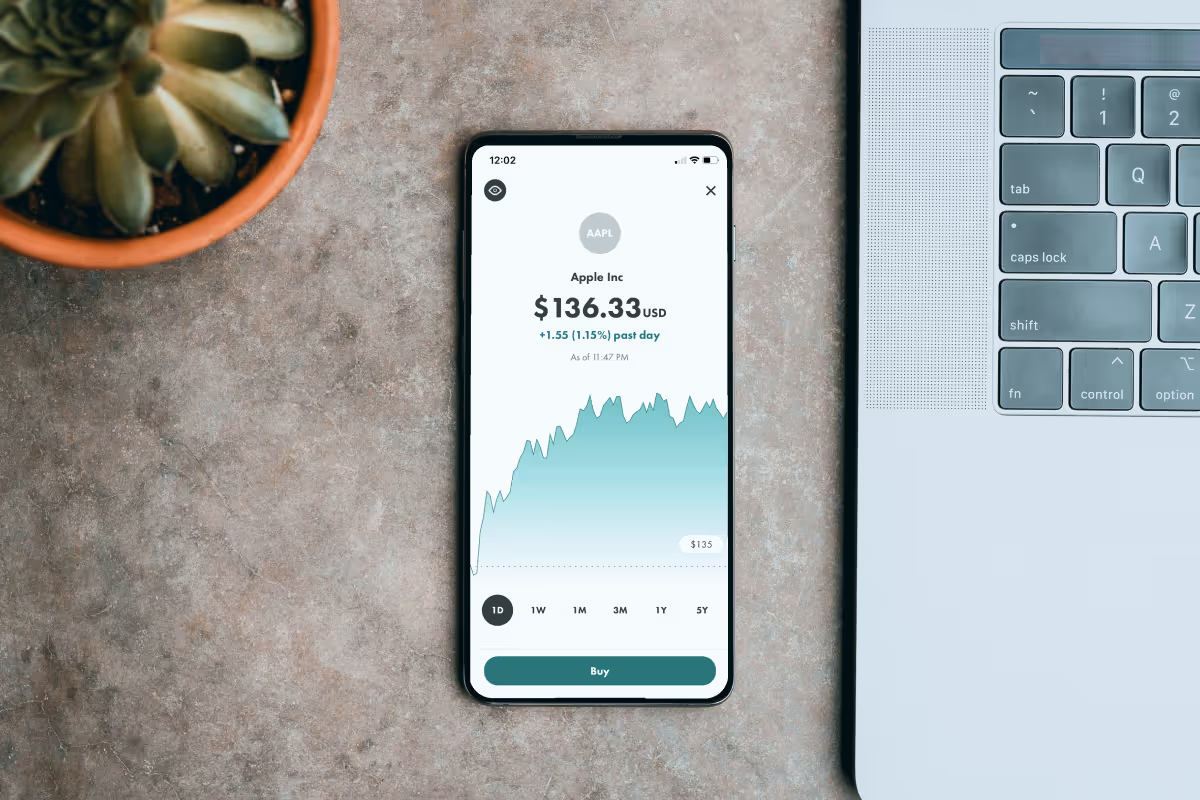There is no better time to hire remote developers for your software-building initiatives. Studies indicate that companies transitioning to remote work can save an average of $11,000 per employee annually.
These savings break down as follows:
- $5,600 in office rental costs;
- $2,200 in utility expenses;
- $1,400 in expenditures for coffee and snacks;
- $1,800 in one-time costs for desks, chairs, and laptops.
As a bonus, you get overall job satisfaction due to the increasing preference for remote work among employees. Additionally, hiring from regions with lower hourly rates can further enhance cost-effectiveness without compromising on quality. Taking all of this into account, companies of all sizes are looking for remote software developers to meet their IT demands while retaining a certain degree of flexibility.
As a Business Development Manager at Uptech, I’ve been helping various co-founders with their remote IT outsourcing needs. From what I’ve heard, our clients have greatly benefited from such hiring remote developers rather than from any other form of partnership.
In this guide, I’ll show you how to find and hire remote developers for your software projects and how to recruit the right ones for your team.

3 Key Steps to Hire Remote Developers
With access to all the talents in the world, opting for a remote collaboration model may seem like an easy task. Well, it can be so if you follow these 3 steps for hiring remote developers, each being broken down into subcategories for a better understanding.
Step 1. Carry out thorough preparation
Before you start to recruit remote software developers, you must go through the exhaustive preparation stage. This is the foundation, the pillar, the heart and soul — pick whatever phrasing you prefer — of the successful future collaboration.
The preparation phase will include the following tasks:
- clear definition of your needs;
- a decision regarding where you want to hire remote software engineers;
- a thought-though and well-written job description;
- the choice of the most fitting hiring channels;
- a remote-friendly interview process.
So, let’s get into more detail with each of these tasks and how you can approach them.

1. Define your needs
Every business is unique: An idea, an organizational structure, products, and services offered are unique. You’ll need to determine how a remote developer could drive your business closer to its goal with the software they will help you develop.
Check out these 5 questions to map out your needs. Of course, they are only the tip of the iceberg: All your requirements are pivotal in deciding the type of talent later.
What type of project will they be working on?
The nature of the project — whether it's a minimum viable product (MVP), a full-scale application, or support for existing systems — greatly influences the skills and experience you'll require from a remote developer.
For instance, if it’s an MVP project, you might need to hire a remote startup developer who is more adaptable and can work with minimal supervision. In this case, the collaboration can be more hands-on, freelance, or contract-based.
In contrast, if there’s a need for ongoing support for IT services, it will make more sense to hire dedicated remote developers or a remote team of developers. This way, the chosen candidates can integrate closely with your existing team over the longer term.
What is the complexity of the project?
- Is it a one-off task?
- Is it an ongoing development?
- Or does it involve continuous maintenance?
The clear answer will help you decide between hiring individual freelancers for specific tasks, engaging with a development firm for a more comprehensive solution, or hiring full-time remote developers for ongoing work.
What collaboration model suits the project best: full-time, part-time, or freelance?
All the previous work done helps you determine the collaboration that you’re comfortable with. Your choice will affect task delegation, coordination, and cost.
The collaboration model — whether freelance, part-time, or full-time — should align with the project's scope and your capacity to manage remote work.
- Freelance or contract-based engagements are often suitable for projects with well-defined outcomes and timelines.
- At the same time, full-time or part-time roles may be more appropriate for projects requiring ongoing development and maintenance.
Your management capacity, familiarity with remote supervision, and the need for direct oversight will further dictate the optimal collaboration model.
What specific skills and experience are required?
Identify the technical skills crucial for your project:
- for a web application, you might need to hire remote web developers proficient in JavaScript frameworks like React or Angular;
- for backend services, experience with Node.js, Python, or Ruby, among others;
- for mobile app development, the respective background in programming languages like Swift for iOS and Kotlin for Android might be a priority;
- For developing live streaming apps, for example, all of the above expertise should be backed by the knowledge of streaming protocols and platforms.
Also, many projects these days demand experience with databases (e.g., MongoDB, Apache Cassandra, MySQL), cloud platforms (e.g., AWS, Microsoft Azure, Google Cloud), and DevOps practices.
What is your budget and expected salary range?
Last but not least at this point, establish a clear budget framework for hiring remote developers early on. The process will include your calculation of the available financial resources in addition to understanding how to translate these resources into the kind of talent you can attract.
Certain factors will significantly influence the cost. They are:
- the complexity of the project;
- the level of expertise required;
- the geographical location of your potential hires.
Given the variety of influencing things, we will get into more detail on how much it costs to hire remote developers further in the text, in a dedicated paragraph.
2. Decide where you want to hire remote developers
Depending on the location of the remote developers, you may need to deal with cultural & linguistic differences, rate, and ease of coordination. If you’re in the US, UK, or Western Europe, it makes sense to hire remote software developers from Eastern European countries like Poland or Ukraine.
For example, Ukrainian developers are familiar with the Western working culture, possess well-tested skills, and they are highly affordable. Also, Ukraine is close to many Western countries, which facilitate real-time discussions during working hours.
To further refine your selection, consider the following regional attributes:
- Countries with the best price-quality ratio. Southeast Asia and Eastern Europe offer a perfect balance between cost and quality and provide access to skilled developers at competitive rates.
- Regions with the best-skilled developers. North America and Northern Europe stand out for their high concentration of top-tier talent, especially in cutting-edge technologies and sophisticated software development practices.
- Best regions for time zone compatibility. If you are based in the USA and Europe, it's better for you to look at Latin America and Eastern Europe, which offer minimal time zone differences, making them ideal for real-time collaboration.
3. Craft a detailed job description or project outline
Once you have decided what skills you are looking for and the region you are comfortable hiring from, it’s time to think about the creation of a thorough job description and/or project requirements.
Clearly outline responsibilities and expectations
A detailed job description helps potential candidates understand their daily tasks and responsibilities. It also minimizes the risk of mismatches. Here, you must be as explicit as possible about the role's requirements, including all must-haves and nice-to-have skills.
Highlight the specifics of the project
Another important part of your job description should be listing the details of the project developers will be working on. It’s always better to be open about all the nuances so the person (or people) who will be reading this job description can understand if they are willing to or capable of doing such a job.
Specify required skills and preferred frameworks/languages
With the previous work done, you can now detail the technical skills, programming languages, and frameworks that the role implies. The clearer this section is, the better you can filter applicants who don't meet the technical criteria, resulting in a faster hiring process.
4. Choose your hiring channels
Now that you’ve set your sights on a particular country and have a well-written job description in place, you start headhunting. And it’s always better to do it using various talent pools. The choice of a particular hiring channel or a few will depend on the preferred collaboration model in the first place. Of course, your personal trust level in a job board or hiring platform will play its role, too.
We’ll cover this topic more informatively further in the text.
Review platforms
If you want to hire a remote team of developers, not just one freelancer, it’s a good idea to start browsing review platforms and connect with top development firms.
Examples: Clutch, Wadline
Remote job boards
Remote job boards are often used by professionals looking specifically for remote opportunities. As such, they are an excellent place to start searching for software developers who are already comfortable with remote work.
Examples: Stack Overflow, Remote.co, AngelList, Hired
Freelance platforms
Freelance platforms work best for short-term projects, specialized skills, or long-term cooperation with one or several specialists.
Examples: Upwork, Toptal, Gun.io, and Fiverr
Tech communities
Different tech communities allow you to tap into networks of professionals who might be open to new opportunities or can refer others.
Examples: Slack groups, subreddits, meetups related to specific technologies
Industry publications
If your choice is to outsource software development to a tech company, you may find out their level of expertise in a certain area by reading publications.
Examples: Publications on dedicated platforms like LinkedIn or Medium, blog posts on a company’s website.
Personal network
Another nice option to hire outsource developers is to ask employees, partners, and colleagues for referrals. Many companies these days encourage their teams to share the job opening within their networks and even offer referral bonuses as an incentive.
Examples: Referrals from trusted sources
Step 2. Do the screening process and select fitting candidates
With all the tasks from above being ready, you can move on to the next level of hiring remote developers. Regardless of your chosen platform, you’ll still need to assess the skills of the potential candidates or companies.
Freelancing portals allow you to go through the profile and work history of the remote developers you are planning to hire. And as we said earlier, if you’re using platforms like Clutch, you’ll want to find out what other clients say about the respective providers.

1. Review resumes and applications or companies’ case studies
The initial review of either resumes and applications or case studies of software development companies will help narrow down the list of candidates who will go into the next round. Here, the main task is to filter applicants based on essential criteria aligned with your project's needs and the role's specific requirements.
Focus on relevant skills, experience, and achievements
For individuals, focus on relevant skills, experience, and achievements. For companies, evaluate their portfolio and case studies to understand their capability to handle projects similar to yours.
Look for keywords and technologies mentioned in your job description
The next step will be to check if the chosen candidates or companies have experience with the specific technologies and methodologies your project requires. For instance, if you hire a remote programmer to build the web app’s front end, candidates who use JavaScript-based technologies in their work are more valuable to you.
Pay attention to communication skills and professionalism
Given the fact that you’re hiring remote developers, communication skills and professionalism are a few more points to look for in candidates. Of course, you can be somewhat subjective when assessing these qualities. It’s in our human nature. But try your best to pay attention to the clarity and coherence of the information presented in resumes and cover letters, as well as any interactions you may have had with the candidate thus far.
Professionalism in communication, attention to detail in the application materials, and a respectful tone in any preliminary exchanges can indicate a candidate's ability to collaborate and engage in a remote work environment effectively.
2. Conduct initial interviews or arrange a call with a software development team
After the initial screening, prepare to interact directly. For individuals, this means personal interviews; for companies, set up discussions with key team members.
Check for basic qualifications and cultural fit
With questions about previous work experiences or projects, collaboration with teams, and responses to challenging work situations, you will get a more complete picture of the person or team you are talking to.
Example questions for individuals:
- "Can you describe your experience with [specific technology or skill relevant to the job]?"
- "What’s your approach to collaborating in a remote team environment?"
- "What values are important to you in a workplace?"
Example questions for companies might include:
- “How does your team handle project management and communication in complex projects?”
- “Can you give an example of a challenge your team faced in a previous project and how you overcame it?”
Assess communication skills and enthusiasm for the role
A candidate's or a company's communication skills show their ability to express ideas clearly and concisely – both in writing and verbally. So it makes sense to check them out.
Example questions for individuals:
- "What is your vision of clear communication when working on projects remotely?"
- "What excites you most about this role?"
- "Could you describe a specific contribution you made at a previous workplace that you're particularly proud of?"
Example questions for a company:
- "How does your team ensure effective communication across different time zones and remote work environments?"
- "What excites your team about taking on a project like ours? Can you share insights from similar past projects?"
- "Can you describe a project where your communication approach significantly contributed to its success?"
Use behavioral questions to understand problem-solving abilities
You use behavioral interview questions to elicit specific examples of past behavior, which can show how a candidate solves problems and how they approach challenges.
Example questions for both individuals and companies:
- "Tell me about a time when you faced an unexpected challenge on a project. How did you handle it?"
- "Describe a situation where you had to find a creative solution to a technical problem. What was the outcome?"
- "Can you share an experience where you had to mediate a conflict within your team? What was your approach, and what was the result?"
3. Perform technical assessments
This step is about understanding the practical abilities to handle your project's demands. For individuals, this might include coding tests; for companies, a review of technical solutions provided in past projects.
Evaluate coding skills and knowledge required for the project
To practically assess a candidate's coding skills and knowledge for your project, consider a targeted approach. For example, if you plan to develop a healthcare app using React, create a mini-project or task that mirrors a typical component or feature in your actual project.
Example: You can ask the candidate to build a simple user interface with React, incorporating state management and API calls to demonstrate their proficiency with these important aspects.
Consider take-home assignments, live coding sessions, or online coding platforms
It can be helpful to create a take-home assignment that reflects a condensed version of a real challenge your project might face.
Example: if this is an eCommerce app development project, you could ask the candidates to design a simplified product catalog feature with basic CRUD (Create, Read, Update, Delete) operations.
This assignment should be time-boxed to respect the candidate's time. But it has enough scope to demonstrate their coding abilities, architectural thinking, and familiarity with your tech stack.
You can also incorporate live coding sessions for immediate interaction or online coding platforms like HackerRank or Codility for ready-made coding challenges and tests.
Ask for tech presentations from companies
When evaluating a software development company, you may ask for non-sensitive materials, such as general technology presentations that outline methodologies and approaches without disclosing client-specific data.
Request a technical presentation from the company’s lead developers that showcases how they solve common problems in your industry, their architectural strategies, and how they ensure code quality. Such presentations offer insights into their technical depth and expertise without violating confidentiality agreements. If possible, include a demonstration of generic code or components that are similar to what might be used in your project but are not client-specific.
4. Organize in-depth interviews or detailed discussions
In-depth interviews of individuals or finalization discussions with a company, while often not a must-have step, offer the final strokes on the picture of a candidate's suitability. They focus on the nuances of technical and interpersonal skills, which are important since you hire remote software engineers.
Engage in discussions with senior developers about specific technical challenges to take a deeper look at their problem-solving capabilities. Soft skills, such as teamwork, communication, and time management, are also vital, as these traits ensure smooth integration into remote teams.
Additionally, explore their remote work experiences to confirm their ability to maintain productivity and effective communication in a distributed work environment.
Step 3. Hire remote developers or engage a development company
Once you’re happy with the shortlisted candidate, you can officiate the hire with a contract. Specify the expectations from both parties clearly and provide all the necessary requirements to commence the job.

1. Negotiate budget and benefits or terms and project costs
When negotiating the budget, keep the following aspects in mind:
- developer's expertise;
- the cost of living in their location;
- the standard market rates for similar roles.
For companies, discussions may focus on
- project costs;
- payment terms;
- deliverables.
For example, a developer with specialized skills in machine learning may command a higher rate than a generalist web developer. Your task is to offer a competitive package and be clear about the breakdown — how much are the base salary, bonuses, and any benefits like health insurance or professional development allowances.
The same goes for cooperation with a company: If they are just starting out, the cost of development is usually much lower than if you go with an expert company that has finished multiple projects.
Also, don’t forget to make the payment schedule, whether monthly or bi-weekly, crystal clear to set clear expectations.
2. Sign contracts and agreements
As for your contract, it should detail responsibilities and deliverables, like
- What specific number of features per sprint should be developed;
- Whether or not certain parts of your application must be maintained.
Include what you expect in terms of work hours, availability for meetings, and communication protocols. Another important part of the contract is to outline the compensation package as agreed upon during negotiations. Specify any conditions under which the contract might be terminated, ensuring you comply with the labor laws relevant to the developer's location.
For example, if you hire remote developers from a country with strict employment protection laws, ensure termination clauses are legally valid.
Benefits Of Hiring Remote Developers
Did you know that giant tech companies like WhatsApp once leveraged hiring remote development teams to fulfill their IT needs? WhatsApp outsourced most of its development work during its early years and it saved the then-fledgling startup tremendously in budget.
If you’re running a startup or a small business, you have every reason to hire remote workers, and here are some of them.

Overcome tech talent scarcity
Hiring in-house developers with the required expertise can be a daunting affair. This is particularly true if you’re based in the US, which is currently struggling with a major tech talent crunch.
Hiring remote developers broadens your pool of IT expertise. For example, if you’re having trouble finding a Python developer locally, you can find them, for example, in Ukraine, where we’re based.
Hire in the shortest time
When you hire developers by yourself, you have to go through the mundane process of putting up ads, holding interviews, evaluating, shortlisting candidates, and onboarding. They are time-consuming and time is a luxury that many businesses can’t afford to waste.
Instead, you’ll cut short the hiring process when you turn to a remote IT staffing agency. All are sorted out by the outsourcing agency.
Stay flexible
Many businesses, especially startups, are plagued with uncertainties during the early years. Ideally, you’ll want to maintain a fluid organizational structure as the startup grows. This means hiring a team of in-house developers is not an ideal option, as it introduces a substantial long-term operational cost.
In this case, it’s an attractive option to hire remote software engineers. You don’t get tied up with long-term commitment as you only pay for services you need.
Save on hiring budget
When you’re located in developed countries, tech talents come at a premium. In the US, you could be paying around $180 per hour for a developer, but in Ukraine, the same expertise could cost $50.
Cash is the lifeblood of any organization, and you’ll want to be cautious about how you’re spending it, particularly for recruitment.
Tap into proven experience and skills
If you want a higher chance of success when building your app on the first try, you’ll want to work with remote developers. The reason is quite simple. Remote developers tend to work on various types of projects and are likely to be familiar with the app you’re building.
For example, our team has built apps in eCommerce, real estate, fintech, and many other niches. Chances are high that we are familiar with your industry and could help you avoid common pitfalls when building the app.
Keep sustainable growth
Last but not least, even if it seems that hiring freelance remote developers is the best option for startups and small businesses due to perceived flexibility and cost savings, the reality is that this approach may not deliver the best long-term value.
Here’s why.
Full-time remote developers from a dedicated vendor like Uptech align more closely with your company's culture, processes, and long-term objectives.
Such specialists
- provide consistent quality;
- adhere to security protocols;
- integrate fully into your team's workflow.
All of this fosters stronger relationships and ensures project success beyond mere task completion. So, for more sustainable growth and project satisfaction, full-time remote professionals are often the superior choice.

Where to Search for Remote Developers for Hire
Now that we’ve pointed out convincing reasons to hire remote developers, let’s explore the platforms we talked about earlier in more detail. To aid you in your remote hiring campaign, here are a few sources that could land you your first hire.
It's important to note that the choice of platform greatly depends on the collaboration model. Here, we will focus more on channels for searching companies and teams and less on channels for freelance individuals.
Remote job boards
Remote job boards are specialized platforms where you can find remote software developers. This is an option if your task is to establish cooperation with one of several remote specialists, not a dedicated team of software development company. Each remote job board caters to distinct needs and offers unique features to speed up and facilitate the hiring process.

Stack Overflow
Stack Overflow, known for its comprehensive community of programmers, has a premium job board functionality, meaning you must pay a fee to post a job listing. But the money pays off as the platform is completely focused on software development issues.
Remote.co
Remote.co is a job board dedicated entirely to remote work. It provides a curated list of job opportunities across various domains with a strong emphasis on tech roles. The platform is designed for employers who want to adopt remote work arrangements and seek experienced remote workers.
AngelList
AngelList is the go-to platform for startups that want to hire talent. This platform is particularly useful for startups that offer competitive packages, including equity options, which are attractive to potential employees looking for more than just a traditional salary.
Tech communities
There are quite a few tech communities that can work well for networking with and recruiting top-tier tech talent. Visiting them grants you access to professionals who are not actively looking for jobs but are open to exciting opportunities.

GitHub
GitHub is a powerful networking tool and a popular repository hosting service. Millions of developers collaborate on various projects on GitHub, making it an ideal place to identify talent to help you with your software development initiatives.
Reddit’s r/programming
This is a subreddit designed by and for the community of programmers who discuss topics ranging from software engineering to web development. It has more than 6 million followers, so you can definitely find candidates who are well-versed in the technologies you need.
Dev.to
Dev.to is a community-driven platform where developers write articles, participate in discussions, and share updates about the latest technologies and programming practices. Here, you can identify thought leaders and active contributors in specific technology areas.
Industry publications
Let’s say you want to cooperate with a software development firm on a remote basis. Before actually hiring remote developers, it would be a good idea to check their blogs. Luckily, most IT outsourcing firms maintain a good content marketing strategy. You’ll want to check out blog articles, thought-leadership pieces, and case studies from companies offering software development services.
Some companies publish on platforms like LinkedIn and Medium. But you can do a quick search on Google on software topics to find blogs published by such companies.
From the publications, you’ll have a good idea of what the outsourcing provider is capable of. You’ll get a glimpse into the provider’s past works, developers’ expertise, quality standards, working style, past works, and recommendations from clients.
Third-party research & review platforms
Getting unbiased reviews and research from third party platforms is a good way to help you search and decide on what remote team to hire. Here are a few that help.

Clutch
Clutch has more than 150,000 IT agencies in its directory and has sought out more than 98,000 reviews from real customers. You can search for IT development companies in any location and check out brief details like hourly pricing, service focus, and clients’ feedback.
Wadline
Wadline has a big directory of over 50,000 tech and IT service providers, enriched by more than 20,000 authentic customer reviews. The platform allows for an easy search of tech agencies across various locations, along with insights into their service specialties, project sizes, and client testimonials.
GoodFirms
Get connected to more than 60,000 IT companies offering a diverse range of services at GoodFirms. This B2B IT review site has garnered more than 30,000 verified reviews from clients who sought out the companies under its listing.
Freelancing platforms

Upwork
Upwork is the leading freelancing marketplace in the world. It boasts a huge pool of freelancers in various disciplines, including software development. You can post a job on Upwork or browse through the profiles of remote developers to hire one.
Toptal
Toptal has a stringent selection process that only allows top developers on its platform. When you hire remote developers at Toptal, you’re assured of the best candidates possible but be prepared to pay a premium price for the service.
Guru
Guru is the go-to hiring platform that leans towards technical skills like software development. While it has a smaller talent pool than Upwork, you’re likely to find great programmers and app developers on Guru.
Why is it better to hire remote developers over freelancers?
So the critical question for the cofounder is: remote developers vs. freelancers – whom to hire? The first thing to know here is that both options are effective in different cases. You will make the right choice between the two, keeping in mind your project requirements.
As for freelancers, these guys are an excellent choice for short-term projects. At the same time, a remote development team is an option to go for in case of long-term collaboration (several months or years).
But why is the remote developers’ team better in the long run?
Unlike individual freelancers, a team of remote developers includes a complex of professionals with different fields of expertise (UX designers, Product Managers, Tech Engineers, Architect Engineers, and Software Developers).
Such a versatile team will help you not just to develop software but build a complex product with a solid product-market fit and competitive advantage in the market.
How Much Does It Cost to Hire a Remote Developer?
The cost of hiring a remote developer can vary from $15,000 to $150,000 per year, or hourly rates between $15 and $150.
The costs of hiring remote developers are driven by several important factors, like:
- application size;
- the complexity of features and their number;
- the geographical location of the remote software engineers to hire.
For an illustrative explanation, let's use the average hourly rates of developers from Ukraine, which range from $25 to $50, to build a table that factors in app complexity, the number of features, approximate app development time, the number of developers needed, and resulting approximate costs. We'll use a midpoint rate of $37.5 for simplicity.
With this in mind, let’s get into the nitty-gritty details of the key factors we’ve listed.
Application size
The size of the application is going to determine the costs of hiring remote software engineers big time.
Simple apps with limited functionality (e.g., calendar or clock apps) and a standardized UI require fewer resources They typically require just one or two developers, thus keeping costs lower.
Medium-sized applications with customized interfaces and a more significant number of features like payment integration will necessitate a higher investment due to the need for more skilled developers or a small team (in most cases, more than 3 developers are involved).
Large applications with extensive functionalities and complex backend requirements demand you to hire a team of remote developers with extensive expertise. This results in the highest costs among the three categories.

Features complexity
The costs will also be driven by the complexity of the desired features in addition to their number.
Basic features with simple UIs and functionalities can be developed by less experienced developers at lower costs. For example, this can be a simple product catalog or search functionality in the eCommerce software development sector.
More complex features like customized UIs and real-time fraud detection increase costs. For example, our work on a green investment app involved complex portfolio management and predictive modeling.
Highly complex features necessitate senior developers and potentially a team, further escalating costs. In healthcare, for example, this can be advanced patient management systems that integrate with EHRs (Electronic Health Records) and support complex data privacy regulations like HIPAA.
Location of remote developers for hiring
The geographic location of the developer plays a significant role in determining the hourly rate.
For more information on this, read our dedicated article on the best countries to outsource software development to.
Why Hiring Remote Developers from Uptech is a Good Idea?
As far as remote software development is concerned, Uptech is a reliable software development partner. Our company has 8+ years of experience working with tech clients from different parts of the world.
Let’s look at some of our cases:
Nomad
One of our notable experiences involves Nomad, a startup in the real estate industry in Dubai. We helped Nomad build its real estate web app from scratch and deliver a solution that more than satisfies our client. It is an effort that involves multiple facets of software development, including the discovery stage, user research, UI/UX design, and backend development.

Eatable
Eatable is a food-tech company that helps restaurants in the sphere of dark kitchens not be bothered with the orders and delivery, but focus on the food only.

For Eatable we carried out a Discovery Stage and found out that the B2B partnership with restaurants will be a perfect model for this type of business.
We also managed to alleviate the workflow and let the restaurant edit the menu themselves without waiting for the admin’s approval. The updated menu management system saved a lot of time and allowed moving on faster.
Aspiration
Aspiration is a fintech firm dedicated to ethical banking. Partnering with Aspiration since 2016, we at Uptech have helped them develop user-friendly and reliable iOS and Android applications. A testament to Uptech's expertise is the impressive 99% crash-free rate of these applications, ensuring a dependable digital banking environment for Aspiration's eco-conscious clientele.

We understand what your startup needs quickly and get started with minimum fuss. Our team is powered by experienced cross-discipline software experts. We’re familiar with software development best practices and leverage that to simplify app development for our clients.
Summary
Startup founders hire remote developers to address the tech talent shortage. The move is greatly beneficial as it provides flexibility and access to a cheaper, broader talent pool. We’ve shown you where and how to find the right remote IT talent and made our point of why Uptech is in a good position to assist you.
Talk to us and learn how to take your ideas to the market affordably and in the shortest time.
FAQs
Should I consider hiring a remote development team instead of several specialists?
It depends on your project and goals. Hiring a remote development team can streamline project management and foster a unified approach, which is particularly useful for projects requiring integrated solutions rather than niche expertise.
Is there any difference in hiring remote app developers compared to hiring remote software developers?
On the surface, no. But if to look deeper: While both app and software developers share common fundamentals, app developers typically possess specialized knowledge in mobile operating systems and user interface design, crucial for mobile-centric projects. Software developers are often referred to as specialists who build any software systems, not mobile apps only.
What are the benefits of hiring remote developers from Eastern Europe?
Developers from Eastern Europe often possess robust technical education, provide competitive pricing, and have a work ethic aligned closely with Western business standards.
Should I first hire remote MVP developers before investing in a full-fledged cooperation?
In most cases, it’s a good idea to hire MVP developers as initially, it allows you to test the viability of your product concept and the effectiveness of the remote collaboration model with minimal risk before committing to full-scale project development.












































































.avif)























